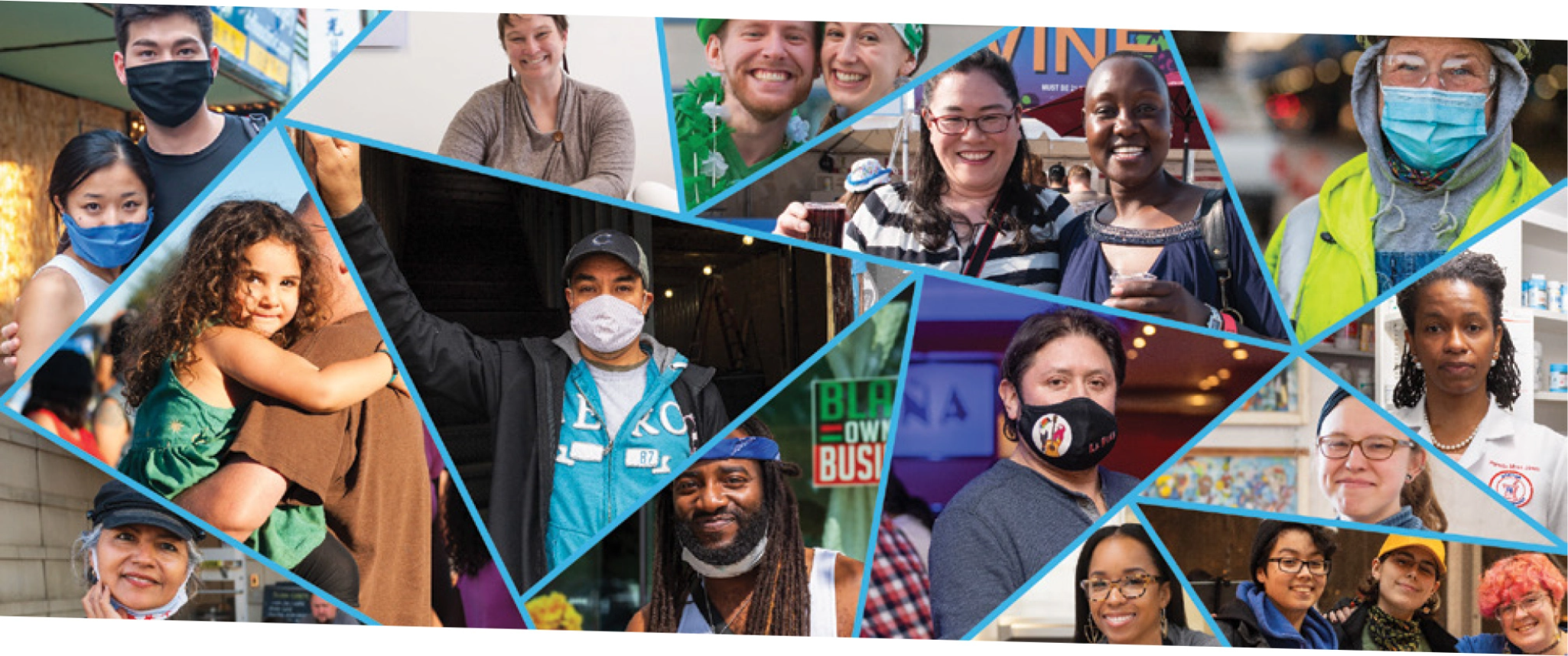We Will Chicago

A 10-year framework for citywide growth and vibrancy, We Will Chicago is a critical tool to guide the city’s future annual budgets, capital projects, and policy priorities to ensure public decision-making is focused on the needs of the entire City and all of its residents.
Approved by the Chicago Plan Commission after three years of intensive neighborhood-based and virtual public engagement, “We Will Chicago” consists of more than 40 goals and 150 objectives to guide the City’s governance across eight “planning pillars” for the next decade. The pillars include Housing & Neighborhoods; Arts & Culture; Environment, Climate & Energy; Lifelong Learning; Public Health & Safety; Transportation & Infrastructure; Civic & Community Engagement; and Economic Development.
Pillar goals and objectives were created by research teams that identified Chicago’s most pressing needs since the last citywide plan of 1966, including the challenges of urban renewal, loss of public housing, school closures, vacant lots and more. Research teams consisted of a diverse group of over 115 resident volunteers, 25 community-based organizations, and 100 city staff selected through a citywide open application process in 2021. Each goal includes multiple objectives to realize progress over time, as well as baseline data on social, health, and economic inequities to monitor throughout implementation.
QUICK LINKS
- Adopted We Will Chicago Framework Plan
- Implementation Starter Guide
- Inventory of Past Plans
- We Will Chicago CPC resolution
- Historical Acknowledgement
- Equity Dashboard
 EXPLORE THE CITYWIDE PLAN
EXPLORE THE CITYWIDE PLAN


This Chicago Equity Dashboard provides data on key indicators of equity in Chicago across the 8 pillars of the plan. The intent is to transparently display the current equity gaps that will be addressed through the implementation of the plan. The dashboard will also show change over time along the key indicators to help monitor overall progress in closing key disparities.

The We Will Pillar Research Teams met monthly to develop and review the key questions, objectives and recommendations that will shaped the We Will Chicago plan. These seven groups represent a core community engagement strategy of the second phase of We Will, which ran through Spring 2022.
View a list of community partners and volunteers.
Review meeting summaries compiled by the Chicago Documenters Network

From its initial stages artists have been an integral part of the We Will Chicago planning process. The Department of Cultural Affairs and Special Events (DCASE) has commissioned five projects from artists across the city to continue engaging residents in the themes and goals of the plan.
In 2023, members of the public were invited to participate in conversations, performances, workshops, film screenings and more.

We Will Chicago public engagement centered around gathering quantitative feedback from Chicagoans regarding the draft citywide framework plan. From participation at street festivals to virtual and in-person information meetings, the Department of Planning and Development collected feedback from more than 10,000 individuals through in-person and online surveys.

As part of the We Will Chicago engagement efforts, Metropolitan Planning Council and Chicago Council on Global Affairs hosted the Global Voices, Local Action webinar series. The seven-part series featured a panel of local and international leaders discussing pillars within the We Will Chicago citywide draft framework plan highlighting the innovation and successes happening internationally.

